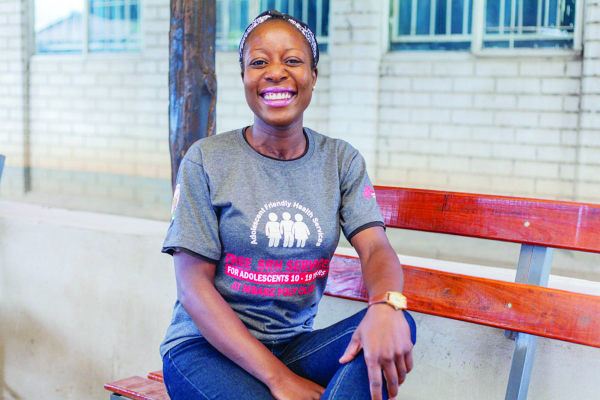
Farai (not real name) nervously glances around the room which was slowly filling up. The nurse who was attending to patients looked too mature and that made her the more uncomfortable.
BY PHYLIS MBANJE
Whenever it was her turn to approach the bench she would slink back and let some,one go ahead until there was no one else left in the room.
The nurse looked up and with an irritated tone asked her to come forward. She lost her nerve and bolted from the room, her face burning with embarrassment.
Farai, like most young people in Zimbabwe, was afraid of being stigmatised for asking about sexual reproductive health services.
This is despite the fact that young people are experimenting with sex as early as 12 years.
Society is quite harsh when it comes to discussing issues to do with sex, which is a taboo.
The hard reality is that these young people engage in sex without protection or information on how to prevent unwanted pregnancies, STIs and HIV infection.
- Chamisa under fire over US$120K donation
- Mavhunga puts DeMbare into Chibuku quarterfinals
- Pension funds bet on Cabora Bassa oilfields
- Councils defy govt fire tender directive
Keep Reading
Doctors Without Borders (MSF) is concerned that without free and access to health services (including contraceptives, condoms, treatment for sexually transmitted infections [STIs]) the rates of adolescent pregnancy and HIV will increase while knowledge levels on sexual health decline.
“In Zimbabwe, a host of barriers are preventing adolescents, defined as aged 10 to 19 years, from accessing sexual and reproductive health (SRH) services safely and confidentially without the consent of their parents,” said Angela Makamure from MSF.
Without free and informative access to health services that include contraceptives, treatment for sexually transmitted infections and condoms, national studies show that rates of adolescent pregnancy and HIV are increasing, while knowledge levels around sexual health are declining.
One study revealed that Zimbabwe has the highest teenage fertility rate in sub-Saharan Africa with one in every 10 girls aged between 15 and 19 years falling pregnant every year.
“Zimbabwe national law states that young people below the age of 16 years can’t take an HIV test without parental consent, and health workers often stigmatise young people seeking sexual health advice,” said Makamure.
Yet in many communities like Mbare, a sprawling high-density suburb in the capital Harare, the reality is that young people start having sex and experimenting as early as 12 years, frequently without protection or information on how to prevent unwanted pregnancies, STIs and HIV infection.
Young people living with HIV also face particular difficulties, especially if they only learn of their HIV status by accident in their teens.
Most find it difficult to accept their condition, and often stop taking their antiretroviral treatment.
Crowded living conditions, which force young people out of their homes, and abuse of alcohol and drugs, also plays havoc with staying on regular treatment.
Recognising the huge vulnerability of adolescents like Farai without access to free sexual and reproductive health services, MSF partnered with the Harare City health department to start an ‘adolescent-friendly corner’ at Edith Opperman clinic in Mbare.
Staff in the brightly-coloured rooms offers free services which include general health check-ups, HIV testing and counselling, screening for STIs and contraceptive services.
In between appointments, young visitors can play pool or chat with ‘peer educators’, themselves young people, who MSF has trained and mentored to discuss sexual health issues with their peers or encourage them to stick to their treatment.
In 2017, 2 454 consultations were provided for young people in the adolescent corner.
The project advocates strongly to increase access to adolescent sexual reproductive health care and HIV prevention, treatment and care services in Zimbabwe.











